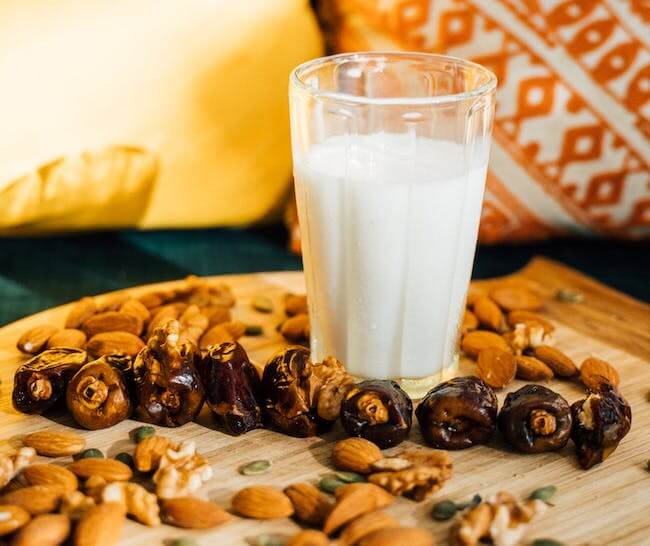Vegetables are a cornerstone for any healthful diet. Vegetables provide critical vitamins, minerals, energy, and fiber for the human body to function optimally. Vegetables are notable for vitamins C and A, phytochemicals, antioxidants, and fiber.1
Diets high in fiber intake from whole foods are linked to a lower occurrence of heart disease and obesity. Fiber found in whole vegetables and fruit is more filling than other forms, such as fiber added to drinks.1
Some research indicates specific types of vegetables (like green leafy vegetables) or phytochemicals in vegetables may reduce the risk of type 2 diabetes or cancer.1
Despite the benefits of vegetables, only 10% of Americans consume the recommended 2 to 3 cups daily, according to the Centers for Disease Control and Prevention (CDC). Most adults reported that cost, limited availability, and access were barriers to consuming enough vegetables (and fruits).2
Incorporating frozen vegetables into your diet may help you meet the daily recommendations and improve your health. Frozen veggies are more affordable and available year-round.
In this article, you’ll learn about the differences in nutrition between frozen and fresh vegetables, the pros and cons of choosing each, and tips for enjoying frozen produce.
{{mid-cta}}
Does Freezing Vegetables Affect Their Nutrition?
Any type of food processing or cooking affects the nutritional value of that food item. Food processing is any activity that happens between raw food and the final product you eat.
Heating, cooking, freezing, and drying can destroy some vitamins and minerals. While removing the peels of vegetables, fruit, and grains removes some phytochemicals and fiber.3
Freezing can impact vegetables in a few ways:
- Micronutrient Levels: the freezing process may slightly reduce some vitamins or minerals.3
- Faster Freezing: certain processing techniques and cooking methods, like quick or flash freezing, can retain more nutrients in vegetables and fruits. Vegetables are often picked at peak ripeness and nutrition content and frozen within a few hours.3
- Blanching Before Freezing: putting vegetables in boiling water or steam for a short time before freezing maintains flavor, color, and texture. It also reduces any bacteria or microorganisms present in the vegetables.3, 4
While freezing can affect their nutrition, it ensures safe and accessible vegetables harvested at peak ripeness and nutrients. Frozen vegetables are a simple and effective way to include more vegetables into your diet.
Are Frozen Vegetables as Healthy as Fresh Ones?

The short answer is yes. Frozen vegetables are as healthy and nutritious as fresh vegetables and may help you eat vegetables.
Both fresh and frozen vegetables lose nutrients after being harvested. Most people store their vegetables at home for five days before eating them. Interestingly, the nutrient loss is halted with frozen vegetables once they are frozen.5
Research on six common vegetables (broccoli, cauliflower, corn, green beans, spinach, and green peas) shows that the nutrients found in fresh vegetables five days after purchase were similar to those of frozen vegetables.5
The nutrient differences between the typical storage behavior of fresh grocery store-purchased vegetables compared to frozen store-bought vegetables are small.5
Eating vegetables fresh out of a garden at peak ripeness will likely have more nutrients and stronger flavor, but this is likely only possible for some people year-round.
<div class="pro-tip"><strong>Also Read: </strong><a href=/best-low-carb-vegetables>25 Best Low-Carb Vegetables for Your Diet</a></a>.</div>
Nutrition of Fresh vs Frozen Vegetables
Fresh vegetables picked at peak ripeness will have more nutrients than frozen vegetables. However, purchasing fresh vegetables at a farmer’s market or growing your vegetables is only possible during certain times of the year and depends on your ability to do this.
Most people purchase vegetables from a local grocery store. Research on fresh and frozen vegetables reveals that frozen vegetables maintain more than 90% of their original amounts of vitamin C, beta-carotene (a precursor to vitamin A), and folate. Some retained all of their nutrients.5
Another study found similar results among corn, carrots, broccoli, spinach, peas, and green beans and assessed changes in vitamins C and E, beta-carotene, and riboflavin.6
Overall, the vitamin content of frozen vegetables was similar to and occasionally higher than that of fresh vegetables. After ten days of fresh vegetable storage, frozen vegetables retained the same or higher amounts of riboflavin and vitamins E and C. Beta-carotene was the only nutrient that decreased significantly in frozen peas, carrots, and spinach.6
Consume your fresh vegetables within five days of purchase for optimal nutrients. Longer storage equates to fewer nutrients.5, 6
Consume frozen vegetables within 8 to 12 months when stored at or below 0 degrees Fahrenheit.7
After this time frame, the vegetables are considered safe but lower in quality and nutrients. Frozen foods lose fewer nutrients initially if they are blanched but lose more nutrients at longer storage times.7, 8
Research shows frozen vegetables stored properly maintain most nutrients even at 90 days (or three months).5
What Are the Pros and Cons of Picking Frozen Vegetables?
Most people think that fresh vegetables are vastly superior to frozen vegetables, but research indicates that this is not true concerning nutrients.5, 6
Frozen vegetables can be a valuable addition to your grocery cart and freezer. Combining fresh and frozen vegetables can help you eat optimal vegetables and stay within your food budget.
Opt for frozen vegetables without added salt, sugar, fat, seasonings, and preservatives. Choose vegetables as close to the original form as possible to gain their health benefits.
Here are some of the pros and cons of frozen vegetables:
Pros
- Convenience (pre-washed, chopped, and ready for use)
- Affordable and accessible
- Provides comparable nutrients to fresh vegetables
- Harvested at peak ripeness and nutrient levels
- Ease of meal planning and preparation
- Often available year-round, allowing for access to seasonable vegetables
- Relatively long shelf-life (8 to 12 months), less food waste
- Great addition to soups, stews, stir-fries, and mixed dishes
- Can be roasted in an oven or air-fryer or sauteed on the stovetop
Cons
- Texture and taste differ from fresh vegetables; some vegetables become soft or mushy when cooked.
- Learning curve for the best way to cook and prepare appealing vegetables from frozen or which recipes to use frozen vegetables.
- May have added salt, fat, seasonings, sugar, and other ingredients, which can reduce their nutritional quality.
- Need to be cooked before eating, compared to simply snacking on some fresh cherry tomatoes or carrots.
- Can easily be forgotten in the freezer (out of sight, out of mind).
- Fewer choices compared with fresh, seasonal produce.
One way to stretch your time between grocery shopping is to use both fresh and frozen vegetables. Use fresh produce to prepare meals during the first couple of days after grocery shopping. Then, switch to frozen vegetables for the latter half of the week.
You can reap the health benefits of each and enjoy meals that work best with each type of vegetable.
6 Ways to Enjoy Frozen Vegetables in Your Diet

Remember, only 10% of Americans consume the recommended 2 to 3 cups of vegetables daily. Using frozen vegetables can help you add 1 to 2 cups of vegetables into your eating routine.2
Here are some ideas to help you include frozen vegetables in your diet:
- Add frozen stir-fry vegetable blends to the cooked chicken and sauce and serve over whole-grain rice.
- Make smoothies with frozen riced cauliflower, frozen berries, Greek yogurt, ground flax or chia seeds, nut butter, and water.
- For a quick roasted vegetable side dish, use frozen broccoli, cauliflower, Brussels sprouts, and green beans.
- Consider using riced vegetables (like cauliflower, broccoli, or sweet potato) for a fiber-rich rice substitute.
- Try sauteeing frozen edamame for a tasty and protein-rich snack.
- Use mixed vegetables (corn, green beans, and carrots) to quickly boost the vegetables in a soup, stew, or mixed dish like pasta or casseroles.
Try some of these ideas to incorporate frozen vegetables into your diet and meet the recommended amount to optimize your health and prevent heart disease, excess weight gain, type 2 diabetes, and cancer.1, 2
Learn More About How to Improve Blood Sugar Health With Signos’ Expert Advice
Incorporating frozen vegetables is a convenient and affordable way to meet your fiber, vitamin, and mineral needs, plus the health benefits of diets higher in vegetables.1, 2
Research shows that store-bought frozen vegetables are comparable to store-bought fresh vegetables. Frozen vegetables are frozen at peak ripeness, leading to higher nutrient levels maintained for many months.5, 6
Fresh vegetables start to lose nutrients after 5 to 10 days of storage in your refrigerator. Combining fresh and frozen vegetables into your meal planning can ensure you consume vegetables with peak nutrients. You can learn more about canned vegetables compared to fresh and frozen varieties.5, 6
Diets high in vegetables are associated with lower rates of heart disease and obesity. The fiber in whole vegetables is more filling and helps prevent mindless snacking. Adequate fiber intake can help regulate blood sugar levels.1
A Signos continuous glucose monitor (CGM) can help you monitor blood sugar levels as you increase your vegetable intake, improve your health, and encourage you to adopt healthier eating habits.
Learn more about nutrition and healthy habits on Signos’ blog, which is written by nutrition and health experts. Take a quick quiz to determine if Signos fits your needs.
<div class="pro-tip"><strong>Learn More: </strong><a href=vegetables-that-lower-cholesterol>11 Foods and Vegetables That Lower Your Cholesterol</a>.</div>
- Item 1
- Item 2
- item 3
Topics discussed in this article:
References
- https://pubmed.ncbi.nlm.nih.gov/22797986/
- https://www.cdc.gov/mmwr/volumes/71/wr/mm7101a1.htm
- https://pubmed.ncbi.nlm.nih.gov/36554295/
- https://nchfp.uga.edu/how/freeze/freeze-general-information/blanching-vegetables/
- https://www.sciencedirect.com/science/article/abs/pii/S0889157517300418
- https://pubmed.ncbi.nlm.nih.gov/25526594/ or https://ucanr.edu/sites/Postharvest_Technology_Center_/files/225618.pdf
- https://nchfp.uga.edu/how/freeze/freeze-general-information/how-long-can-i-store-frozen-foods/
- https://scijournals.onlinelibrary.wiley.com/doi/abs/10.1002/jsfa.2825































